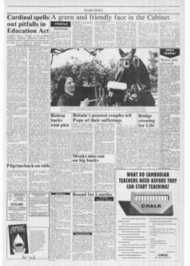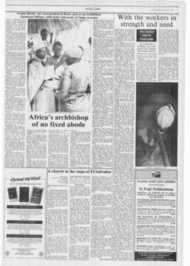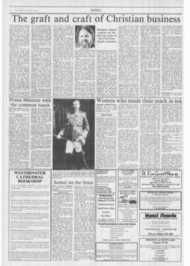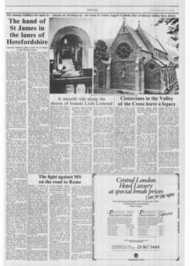Page 6, 28th July 1989
Page 6
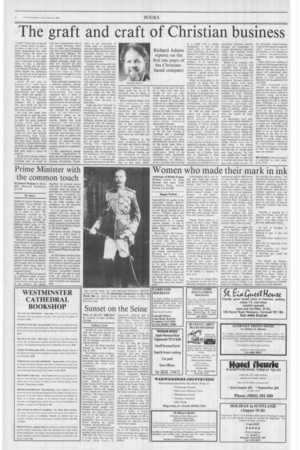
Report an error
Noticed an error on this page?If you've noticed an error in this article please click here to report it.
Tags
Share
Related articles
Expatriates In Search Of Adventure
A Happy Epoch
Corpus Christi At English Church In Paris The Feast Of
Midnight Mass For Tramps
Doing The Lambeth Walk
Sunset on the Seine
Anthony Gynn Paris on the Eve 1900-1914 by Vincent Cronin (Collins £18.00)
AFTER the seige of Paris in 1870 the Prussians insisted on their demand of walking in military procession through the Arc de Triomphe and down the Champs-Elysées. Not even the Nazis marched through it, across that sacred soil, in 1940.
The Parisians stood in silence, buckets and mops in their hands. When the hated columns had passed, they rushed out and scrubbed the street with disinfectant.
A poignant ceremony could be witnessed every July 14 in [Id Place de la Concorde in front of one of the stone female figures. "Tricolours were dipped in salute. Speeches were then made, during which some of the listeners wept. Presently the procession moved off, singing "Vous n'aurez pas ['Alsace et la Lorraine." The statue covered in black crepe, personified Strasbourg, which itself personified those two provinces taken from France in 1870. The national mood caught even Georges Clemenceau, whose will included the stipulation that, were he to die before France revenged the Bismarck humiliation, then he was to be buried standing up, facing Germany. All powerful stuff.
It is against this background that Vincent Cronin has set his excellent book Paris on the Eve, 1900-1914. The "Eve",of course is of the Great War and that revenge which France so expensively achieved and so ruthlessly extracted. But prior to that time, France's own Edwardian period was particularly fertile and particularly French or, to be more exact, Parisian.
The enjoyment of living, for living's sake, and the further proliferation of the Arts seemed all that mattered.
"No less than 200 literary reviews appeared in France between 1900 and 1914." The young Picasso, to learn technique and earn money, painted in the style of Cezanne, Toulouse-Lautrec and Van Gogh. The young Andre Gide, who could, we are told, have been a concert pianist, used his study of entomology to sharpen his observations of humankind. Debussy composed, Diaghiler choreographed, Sarah Bernhardt acted and Marcel Proust beavered away at A la Recherche du Temps Perdu; the synopsis of which, given so lucidly by Mr Cronin, will have the reader eternally in his debt.
It is tempting to compare the vibrant Paris "on the Eve" with the present Paris "en fete." All Mitterand's millions could not recreate the intellectual qualities which were then attracted to the City of Light. A Louvre pyramid, a Bastille Opera and a Defense Arc, though we will no doubt come to love them, are no substitute for individual talent and brilliant minds.
The unique quality of Parisian life at the beginning of this century permeates the pages of a book written by an established biographer of the highest. abilities.
blog comments powered by Disqus




